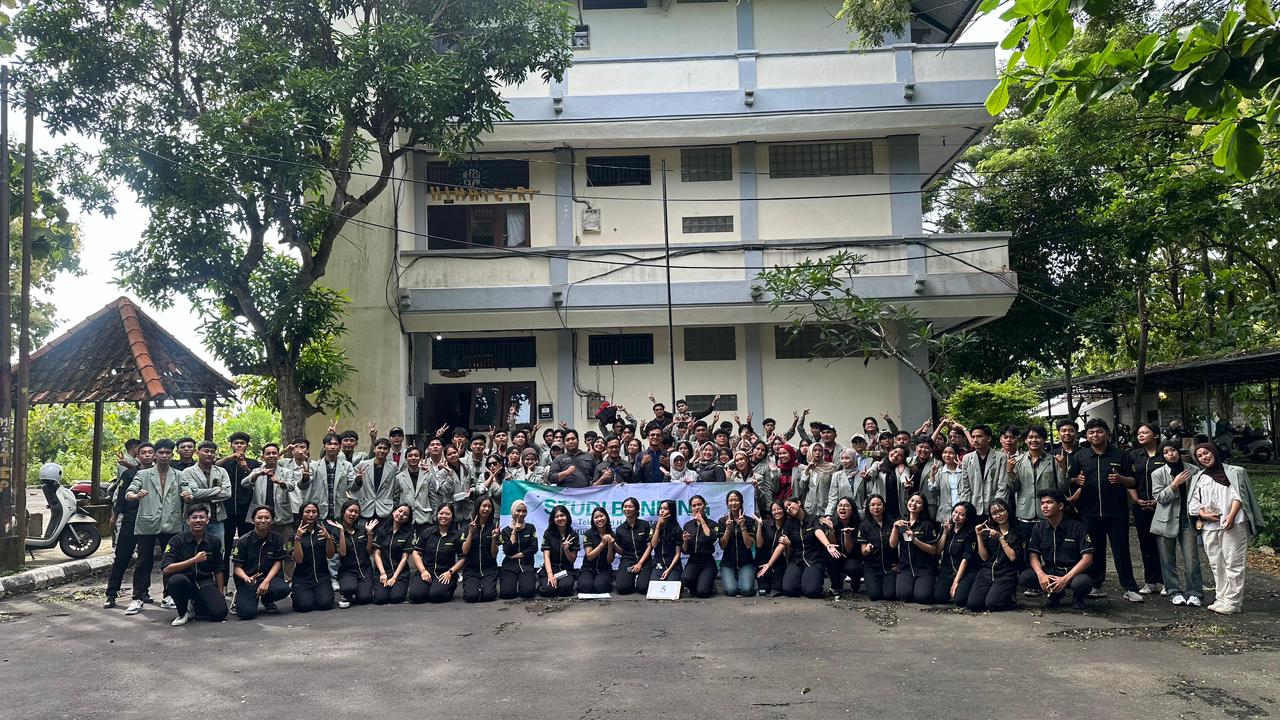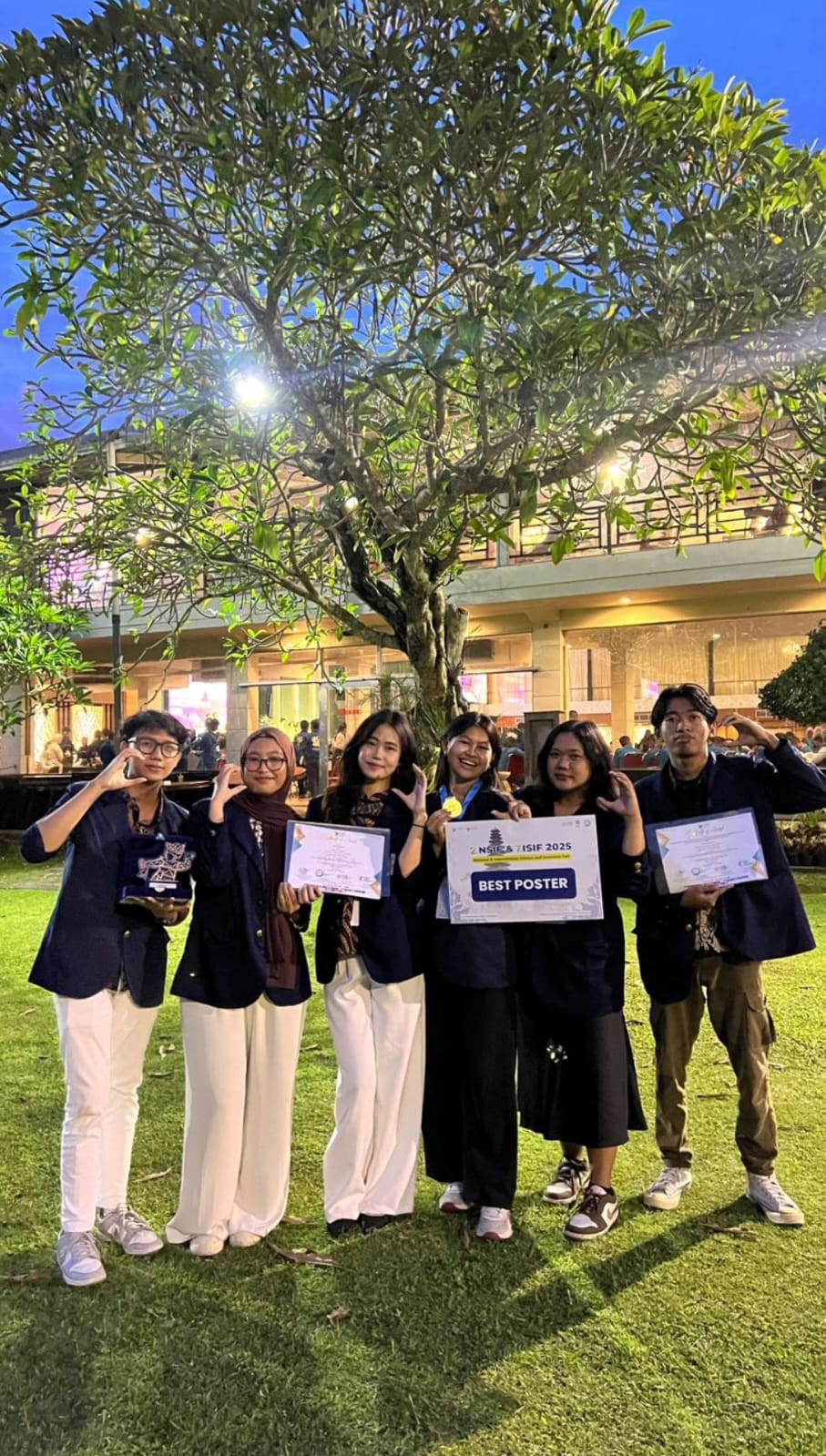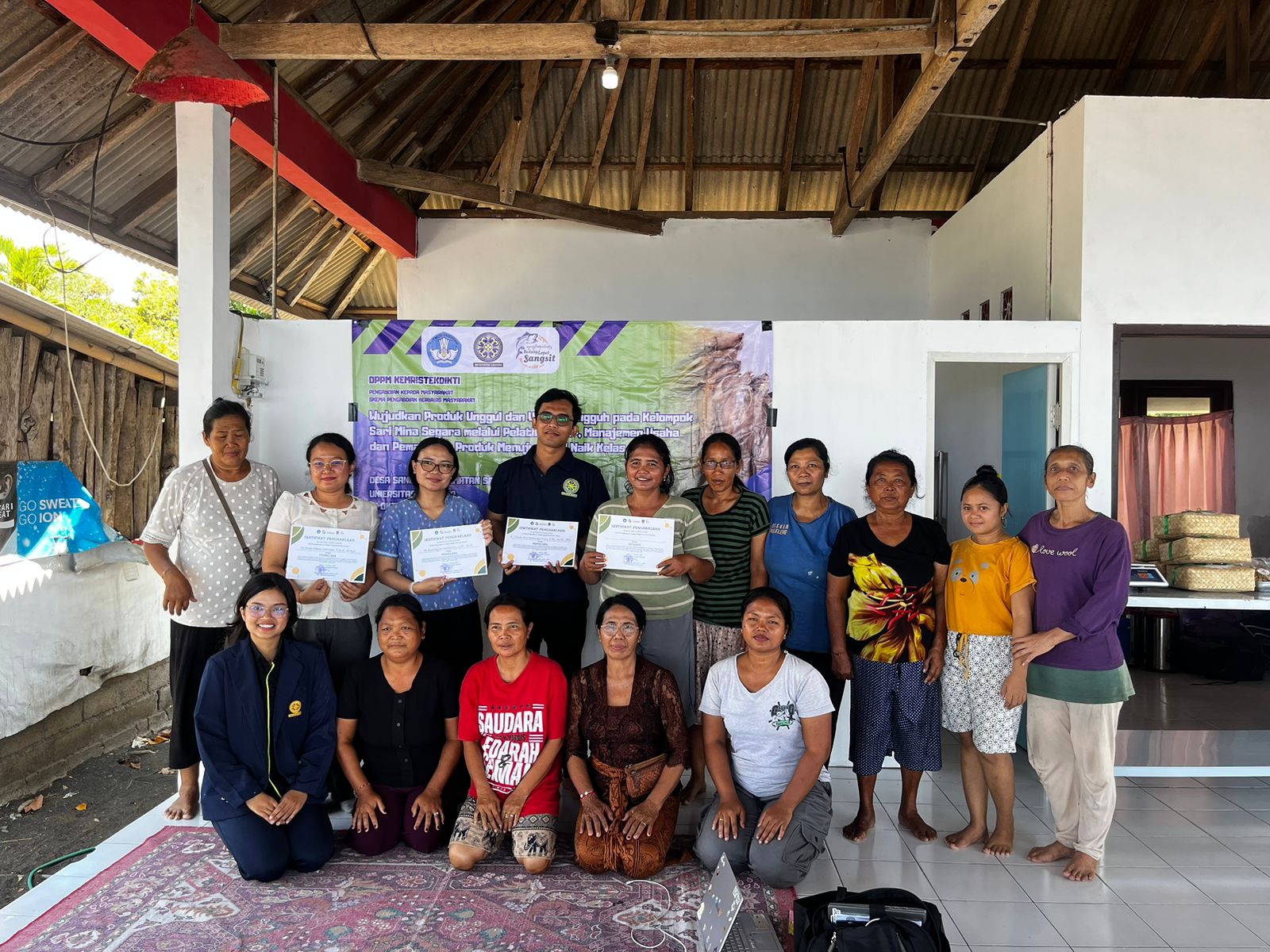Merdeka Belajar Kampus Merdeka (MBKM) Program
The learning process in the
MBKM Programs is one of the very essential manifestations of student centered
learning. Learning in the MBKM Programs provides challenges and opportunities
for the development of innovation, creativity, capacity, personality, and
student needs, as well as developing independence in seeking and finding
knowledge through realities and field dynamics such as ability requirements,
real problems, social interaction, collaboration, self-management, performance
demands, targets and achievements. Through an independent learning program that
is well designed and implemented, students' hard and soft skills will be formed
strongly.
MBKM Programs is in
accordance with Permendikbud Number 3 of 2020 concerning National Standards for
Higher Education, in Article 18 it is stated that the fulfillment of the
learning period and burden for undergraduate or applied undergraduate students
can be carried out: 1) following the entire learning process in study programs
at universities height according to time and learning load; and 2) following
the learning process in the study program to fulfill part of the time and
learning load and the rest following the learning process outside the study
program. MBKM Programs, students have the opportunity for 1 (one) semester or
the equivalent of 20 (twenty) credits to study outside the study program at the
same university; and a maximum of 2 (two) semesters or equivalent to 40 (forty)
credits of studying in the same study program at different universities,
learning in different study programs at different universities; and/or learning
outside of Higher Education.
PS TP responded well to the
MBKM program through the adjustments mentioned above. PS TP has systematically
positioned General Courses and Compulsory Characteristics Courses for PS TP in
semesters I-IV, so that the main competencies of PS TP or CPL from PS TP have
been achieved by students in semester IV when students have taken 80 credits .
This will give students a very wide opportunity to choose 60 credits in
semesters V-VII, whether students will continue to follow the General Curriculum
Structure or choose the MBKM Curriculum Structure. Students who are allowed to
take the MBKM structure at least have sat in semester IV to semester V. The
structure of the MBKM curriculum offered at PS TP is as follows:
MBKM Activities Managed Directly by the Ministry :
1. Student Exchange
The launch of the Independent Learning and Independent Campus (MBKM) program in universities launched by the Ministry of Education and Culture of the Republic of Indonesia, provides flexibility and encourages students to improve their competence by participating in one to three semesters of learning according to interests outside the study program and/or university where he is studying, in order to strengthen and expand the scope of his competence. Thus, students have the opportunity to innovate creatively so that they can quickly align themselves with the progress of students in other universities, especially in the ASEAN region, by choosing to study at universities that are superior in certain competencies. In the MBKM program, universities are expected to provide greater opportunities for students to explore and develop their potential widely and openly through innovative activities and learning using information technology and other technological advances. The Procedures and Requirements of the Student Exchange Program are outlined in detail in the Standard Operational Manual (POB) for the Independent Student Exchange.
2. Student Internships
So far, students have lacked work experience in the real industry/professional world so they are not ready to work. Meanwhile, short-term internships (less than 6 months) are not sufficient to provide students with industry experience and competence. Companies that accept internships also state that short-term internships are not useful, and even interfere with activities in the Industry. The objectives of the internship program include: Internship program 1-2 semesters, providing sufficient experience to students, direct learning in the workplace (experiential learning). During the internship students will gain hard skills (skills, complex problem solving, analytical skills, etc.), as well as soft skills (professional/work ethics, communication, collaboration, etc.). Meanwhile, the industry gets talent which, if suitable, can be immediately recruited, thereby reducing the cost of recruitment and initial/induction training. Students who are familiar with the workplace will be more stable in entering the world of work and careers. Through this activity, industrial problems will flow to universities so that updating teaching and learning materials for lecturers and research topics in universities will be more relevant.
3. Campus Teaching
The quality of primary and secondary education in Indonesia is still very low (PISA 2018 ranks Indonesia no 7 from the bottom). The number of education units in Indonesia is very large and there are various problems, both formal, non-formal and informal education units. Learning activities in the form of teaching assistance are carried out by students in educational units such as elementary, middle, and high schools. Schools where teaching practice can be located in urban or remote areas.
4. Independent Studies/Projects
Many students have a passion for realizing great works that are contested at the international level or works of innovative ideas. Ideally, independent studies/projects are carried out to complement the curriculum already taken by students. Colleges or faculties can also make independent studies to complete topics that are not included in the class schedule, but are still available in the syllabus of the study program or faculty. Independent project activities can be carried out in the form of cross-disciplinary group work.
5. Indonesian International Student Mobility Award (IISMA)
Indonesian International Student Mobility Awards (IISMA) is an international student mobility program for Indonesian students that opens opportunities for students from universities in Indonesia to take part in the learning process at any reputable university in the world to enrich and increase their knowledge. and competence in the real world in accordance with their interests and ideals.
6. Building a Village (Thematic Community Service Program)
Thematic Community Service Program (KKNT) is a form of education by providing learning experiences for students to live in the community outside the campus, which directly together with the community identify potentials and deal with problems so that they are expected to be able to develop village/regional potential and formulate solutions to problems that exist in the village. KKNT activities are expected to hone partnership soft skills, cross-disciplinary/scientific team collaboration (cross-competence), and student leadership in managing development programs in rural areas. So far, universities have implemented the KKNT program, it's just that the Semester Credit Units (SKS) cannot or can be recognized in accordance with the independent campus program whose credit recognition is equivalent to 6-12 months or 20-40 credits, with the implementation based on several models. It is also hoped that after the KKNT implementation, students can write down the things they have done and the results in the form of a final project.
The implementation of the KKNT is carried out to support collaboration with the Ministry of Villages, PDTT and other Ministries/stakeholders. The government through the Ministry of Villages PDTT channeled village funds of 1 billion per village to a total of 74,957 villages in Indonesia, based on data from the Developing Village Index (IDM) in 2019, there were 6,549 very underdeveloped villages and 20,128 underdeveloped villages. The implementation of KKNT can be carried out in very underdeveloped, underdeveloped and developing villages, whose human resources do not yet have development planning capabilities with such large funding facilities. So that the effectiveness of using village funds to drive economic growth still needs to be improved, one of which is through students who can become human resources who empower village funds more.
7. Indonesia's Humanitarian Project
Indonesia has experienced many natural disasters, such as earthquakes, volcanic eruptions, tsunamis, hydrological disasters, etc. Universities have so far helped a lot in dealing with disasters through humanitarian programs. So far, student involvement is voluntary and only short term. In addition, many international institutions (UNESCO, UNICEF, WHO, etc.) have conducted in-depth studies and made development pilot projects in Indonesia and other developing countries. Students with young souls, scientific competencies, and interests can become "foot soldiers" in humanitarian and other development projects both in Indonesia and abroad.
8. Research/Research
For students who have a passion for being researchers, freedom of learning can be realized in the form of research activities at research institutes/study centers. Through research, students can develop critical thinking, something that is needed for various scientific groups at the higher education level. With the ability to think critically, students will deepen, understand, and be able to do research methods better. For students who have an interest and desire to work in the research field, the opportunity to do an internship in a research center laboratory is their dream. In addition, laboratories/research institutes sometimes lack research assistants when working on short-term research projects (1 semester - 1 year).
9. Entrepreneurs
Based on the Global Entrepreneurship Index (GEI) in 2018, Indonesia only scored 21% of entrepreneurs from various fields of work, or ranked 94th out of 137 countries surveyed. Meanwhile, according to research from the IDN Research Institute in 2019, 69.1% of millennials in Indonesia have an interest in entrepreneurship. Unfortunately, the entrepreneurial potential for the millennial generation has not been managed properly so far. The Independent Campus policy encourages the development of student entrepreneurial interests with appropriate learning activities programs.



UDAYANA UNIVERSITY